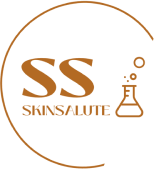The Importance of a Good Physical Sunscreen

A few years ago, I attended a Master Class in Melanoma at Sydney University. Not only was it educational it was an absolute eye-opener to just how vicious this type of skin cancer can be. I knew it could be fatal, but I hadn’t grasped the full extent until that day.
So, how do we avoid getting melanoma, you ask? Sun protection. The more you incorporate it into your daily routine, the more you reduce your risk, not just of skin cancer, but also of premature ageing caused by sun exposure.
It’s Not Just About the Beach
Many people assume sunscreen is only necessary for beach days or prolonged outdoor exposure. While those are important times to apply it, daily protection is just as crucial. We're exposed to UVA and UVB rays all the time—through office windows, while driving, from indoor lighting, and even screens like laptops and TVs.
This is the slow, silent exposure that often goes unnoticed.
This is the slow, silent exposure that often goes unnoticed.
Understanding UVA vs UVB
Let’s break it down so it’s easier to remember:
-
UVA = UV Ageing
- Doesn’t hold heat—you can’t feel it.
- Doesn’t cause sunburn, so overexposure is hard to detect.
- Present from sunrise to sunset, all year round, in all weather.
- Penetrates deeper (dermal layer), breaking down collagen and elastin.
- Can lead to premature ageing, Basal Cell Carcinoma (BCC), and melanoma.
- UVB = UV Burning
-
- Carries heat—you can feel it.
- Causes sunburn.
- Strongest between 11am – 3pm and more intense in summer.
- Only penetrates the epidermis (outer skin layer).
How Can We Protect Ourselves?
Now, I know this may feel a bit overwhelming, but the good news is: protection is easy with the right tools.
All you need is:
- A good sunscreen
- A wide-brimmed hat
- UV-protection sunglasses
Types of Sunscreen: Chemical vs Physical
- Physical Sunscreens
These contain Zinc Oxide or Titanium Dioxide as active ingredients both are minerals (crushed rocks) that sit on top of the skin, acting as a barrier that reflects UV rays.
-
- Zinc is especially beneficial:
- Aids skin healing
- Anti-inflammatory (great for acne and rosacea)
- Supports cell renewal
- Fights free radicals
- Helps reduce oiliness
- Zinc is especially beneficial:
That’s why I personally choose to wear a physical sunscreen every day—not just on my face, but on my body, too, especially when going to the beach.
- Chemical Sunscreens
These absorb into the skin and neutralize UV radiation within the tissues. While they are effective in preventing sunburn, they:
-
- Absorb into the bloodstream
- Produce free radicals, which can accelerate ageing
- Sometimes contain carcinogenic or irritating ingredients
SPF: What Do the Numbers Actually Mean?
There's a lot of confusion around SPF ratings, so here's a simple breakdown: Imagine your skin burns after 10 minutes in full sun with no protection:
- An SPF 30 sunscreen theoretically offers 30 times that protection (10 x 30 = 300 minutes or 5 hours).
- An SPF 50 offers 50 times (10 x 50 = 500 minutes or ~8 hours).
But this doesn’t mean you can apply once and forget it.
At SkinSalute Skin & Wellness, we recommend reapplying every 1–2 hours when outdoors—especially if you're swimming or sweating, even if your sunscreen is labeled waterproof or sweat-resistant.
Also keep in mind:
- SPF 15 blocks ~93% of UVB
- SPF 30 blocks ~97.3%
- SPF 50 blocks ~97.8%
The difference between SPF 30 and 50 is minimal. What matters most is consistent and proper application.
Note: A pure zinc sunscreen usually tops out around SPF 30. To reach SPF 50, it typically includes Titanium Dioxide or chemical filters.
Our Recommendation
At SkinSalute Skin & Wellness, we recommend our Ultraderm Mineral Day Wear SPF 50—a physical sunscreen with Zinc Oxide and Titanium Dioxide.
It has:
- A lightweight texture
- A matte finish (no mid-day shine)
- Oil regulation properties (thanks to Zinc)
- Works with or without makeup
- Doubles as a daily moisturiser
In Summary
- Wear sunscreen daily, not just on sunny days or beach trips.
- Choose a physical sunscreen for broad protection and skin health benefits.
- Don’t obsess over SPF numbers - apply thoroughly and reapply often.
- Protect your skin, prevent ageing, and reduce your cancer risk.
Until next time,
Crystelle
SkinSalute Skin & Wellness
